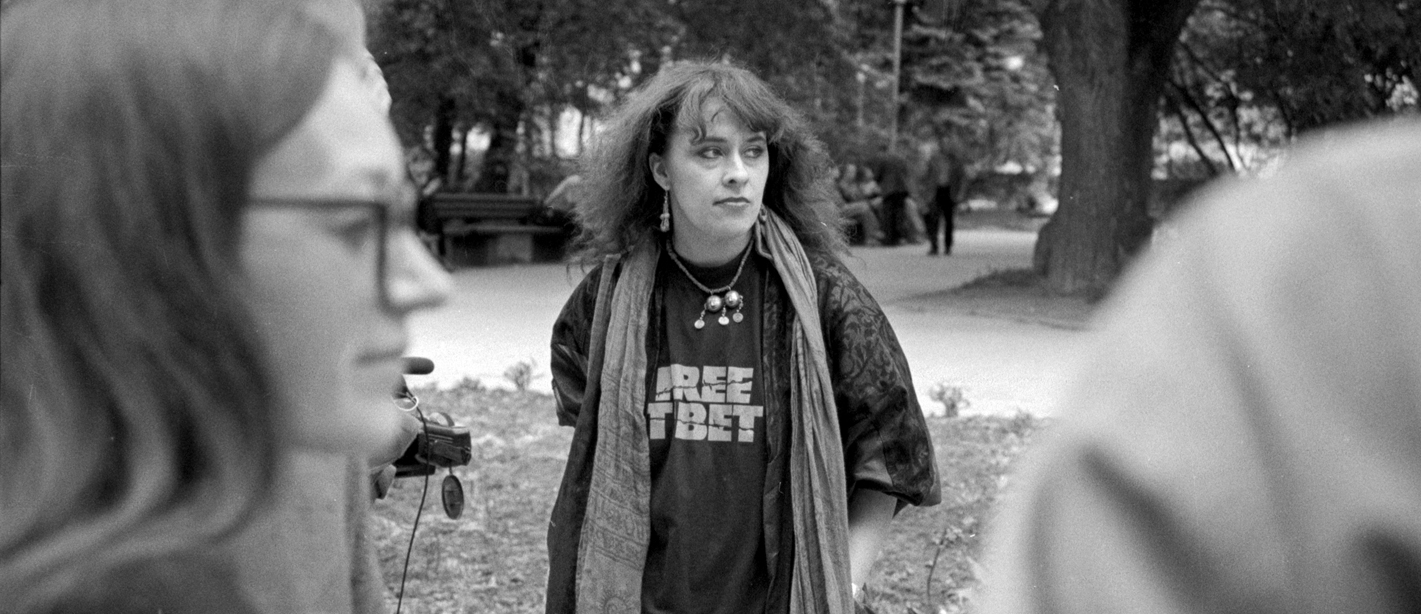Vacuous bureaucratism and the monotonous repetition of ideological mantras finally played itself out, leaving very few true believers. Literature at the start of the 1980s began to gradually regain the former illusion of freedom. After attacking modernism, the regime nevertheless relented and recognized the right of modern writers to exist. What’s more, the works of modern authors began to be translated into Russian and other languages and modern writers received various prizes and awards, including the nation’s highest: the Lithuanian SSR State Prize was awarded to Marcelijus Martinaitis in 1984, Sigitas Geda in 1985, Judita Vaičiūnaitė and Kęstutis Nastopka (the literary critic most supportive of the modern authors) in 1986, and Vytautas Kubilius. Modern authors joined the literary canon and were included in the second volume of the History of Lithuanian Literature published in 1982. The circulation of collections of modern poetry by Jonas Juškaitis, Vaičiūnaitė, Geda and other writers surpassed 10,000. By comparison, 1,000 is considered a large circulation of a poetry book today.
The official discourse began to change. The “realism without shores” program that had been the subject of earlier criticism was now actually implemented. Modern writers who were once criticised now became “socialist realists,” and everything they now wrote could somehow be contoured to fit the framework of socialist realism. The much-criticised chaos of poems by Geda and Vytautas P. Bložė, for example, was now called polyphonic harmony. In 1986, Alfonsas Maldonis, president of the LSSR Writers’ Union, commented that “by revealing man’s inner world, lyrical poetry is increasingly effective at employing the principles of musical composition. [Such poetry] is often created as the intertwining of several themes or the counterpoint to several voices, transforming into an internal language in pursuit of a variety and harmony of tones, as in Bložė’s Niekas (Nothing), Girių motina (Mother of the Forests), Groteskai (Grotesques), and Geda’s Mamutų tėvynė (Homeland of the Mammoths)."
Young authors making their debut in the writing world were unable to attract as much attention and they still received their share of ritualistic criticism, but they were no longer subjected to consistent censorship. The new generation of writers (including Donaldas Kajokas, Kornelijus Platelis, Onė Baliukonytė, Vladas Braziūnas, Nijolė Miliauskaitė, Kęstutis Navakas and Aidas Marčėnas) wrote and lived as if the political world existed somewhere else, having little in common with their own lives. Perhaps precisely because of this, the 1980s were portrayed by younger authors as a period of the greatest stagnation and control.
In truth, the Soviet cultural space was neither simple nor serene, and assaults or fits of censorship would occur in the most unlikely places. In 1986, for example, after publishing a series of poetry entiled “The Death of Maironis” for the 125th anniversary of the birth of the famous Lithuanian poet, Sigitas Geda was required to prove to the Cultural Division of the Lithuanian Communist Party Central Committee and to the LCP Central Committee Secretary Lionginas Šepetys himself that his work contained no anti-Soviet content. That same year, books written by Saulius Tomas Kondrotas were removed from libraries after the author emigrated to the West.
In 1985, Mikhail Gorbachev rose to power in the Soviet Union and proclaimed his policy of perestroika, calling for greater democracy and openness. Environmental action movements proliferated and the memoirs of former deportees to Siberia began to emerge in publication. The most important of these was Dalia Grinkevičiūtė’s Lietuviai prie Laptevų jūros (Lithuanians by the Laptev Sea), published in 1988 in the literary journal Pergalė. True openness came late to Lithuania, however. In 1986, the editors of the journal Literatūra ir menas (Literature and Art) invited one of the bravest authors, Sigitas Geda, to pen an article about the new reform policies, but the resulting essay was considerably edited due to its openness and critical views, while the issue of the journal appeared with a scathing response to Geda’s piece written by a collective farm chairman.
Reform and democratic processes had been mandated by the government but they still needed to be controlled. Vytautas Kubilius wrote in his journal:
If not everything can be said, then encouraging us to write the truth is nothing but demagoguery and self-aggrandizement. Can we speak about the Ribbentrop-Molotov Pact? Or about the situation with the nationalities? Vytautas Kubilius, Dienoraščiai 1978–2004, Vilnius: Lietuvių literatūros ir tautosakos institutas, 2007, p. 36.
A saying from that period put it simply: Perestroika is like the taiga: howling up top, dark and quiet below (перестройка как тайга: в верху шумит, а внизу темно и тихо).
The changes decreed by the party had little impact on cultural life. The stagnation that had dominated the 1970s infected most of the following decade as well. Officially sanctioned literature was completely bogged down in a boring routine. Volumes by Valerija Valsiūnienė or other anachronistic works by socialist realist authors continued to be published. Such a routine helped younger authors to find their footing, as their work was intended to supplement earlier forms of literary work. Many of today’s renowned authors participated in various competitions during this time that were held to commemorate one or another occasion or theme.




Comments
Write a comment